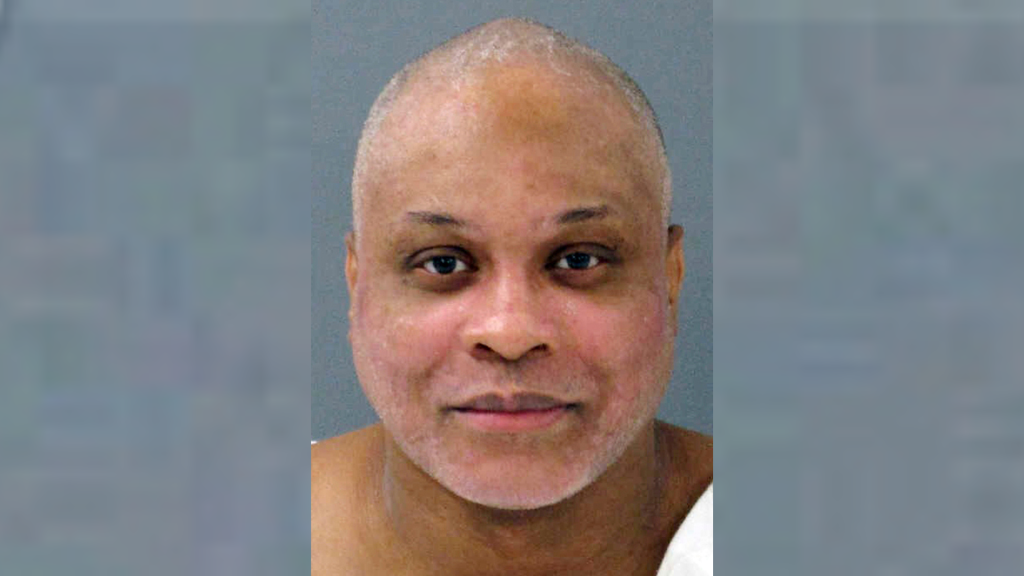Until 2008, New Hampshire never needed an execution chamber. The last person executed in the Granite State, Howard Long, died in 1939 by hanging. While the state’s method of execution was changed to lethal injection in 1986, the state never adopted a protocol for injection, or bothered building a death row.
It wasn’t really a problem until 2008, when Michael Addison was sentenced to death for fatally shooting police officer Michael Briggs, which placed him on a death row that doesn’t exist, in a state that NH magazine says is “more primed for a repeal [of the death penalty] than anywhere else in the country.”
Videos by VICE
How close is New Hampshire to joining the rest of New England by ditching the death penalty? A bid to repeal the death penalty was exactly one vote away from passing when it stalled out in the state senate in April, where the members voted a 12-12 tie, ties going to the status quo. That’s about as close as you can get, except for the bid to repeal the death penalty that passed both the state’s house and senate in 2000, but was vetoed by then-Governor Jeanne Shaheen.
Much of the debate around the 2014 bill revolved around what would happen to Addison. The bill, as written, wouldn’t have retroactively canceled Addison’s sentence, but some, like Kensington Police Chief Mike Sielicki, were convinced that “some federal judge sitting up there will commute Michael Addison’s sentence, and we cannot have that,” as he told the New Hampshire Union Leader while the bill was before the New Hampshire House of Representatives.
States that have repealed the death penalty have also left people on their death rows—New Mexico’s 2009 repeal left two people on death row, Connecticut’s 2012 repeal left 11 people on its own—and the current governor has said she would only support a bill that didn’t affect Addison’s sentence.
While the death penalty remains the law in New Hampshire until at least the new legislation session next January, Jeff Lyons, a spokesperson for the New Hampshire Department of Corrections, is fairly positive that another will follow next year.
“One comes back every year,” Lyons told me. “Some years there are some [bills] to expand the death penalty and some years there are ones to repeal the death penalty. There’s usually a handful every year, pretty much the same thing, and I expect we’ll hear more about it next year. It just depends on how election results are.”
January 2015 is also when the last oral arguments before the New Hampshire Supreme Court are scheduled, and will focus on whether Addison’s sentence is legally proportional, a spokesperson for the Supreme Court told me.
While the majority of Americans remain in favor of the death penalty, that number has been steadily falling. Among legislators, support for capital punishment is flagging, even in the GOP. Conservatives from New Hampshire to Kansas have been speaking out against the death penalty, largely on the basis of the government being incapable of doing anything right, much less something irreversible.
Even if the death penalty remains on the books in New Hampshire for decades, given that 75 years have passed since the last execution, it seems possible that Addison could be both the first and the last person executed in New Hampshire by lethal injection, especially considering approved lethal injection drugs are becoming increasingly difficult to acquire. This leaves the question of where he’ll be executed, something that the Department of Corrections isn’t sure of either.
“At this time we have not put in any requests for a capital project,” Lyons said. “The last time we looked at the potential costs of this was in 2007. We did a master plan of all department facilities and one of the questions that the construction company looked at was construction of an execution chamber and they estimated the cost to do so was $1.77 million to do that.”
The death row used for Howard Long eventually became a place where the prison stored Sierra Mist, according to a 2008 NPR story, and Lyons told me that, for want of a death row “per se,” Addison is housed in a maximum security unit along with other maximum security inmates.
He said the DOC has been working with the attorney general to figure out how to—legally and constitutionally—put together a place for the execution to take place, “should the time ever come to do so.”
Professional that he was, Lyons never hinted at either way he felt about the death penalty’s odds, although he did imagine that getting the death penalty repealed while Addison was still on death row would probably result in Addison’s sentence being moved down to life without parole.
New Hampshire’s caught in a bit of a dilemma then, where the state can’t execute this man but it can’t not execute him. Michael Addison’s sentence was probably life in prison with a very small chance of death all along, which is precisely why a judge called California’s death penalty unconstitutional in July.



